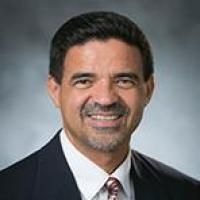Effect of a Coaching Intervention to Improve Cardiologist Communication: A Randomized Clinical Trial.
Date
2023-04
Journal Title
Journal ISSN
Volume Title
Repository Usage Stats
views
downloads
Citation Stats
Attention Stats
Abstract
Importance
Communication between cardiologists and patients can significantly affect patient comprehension, adherence, and satisfaction. To our knowledge, a coaching intervention to improve cardiologist communication has not been tested.Objective
To evaluate the effect of a communication coaching intervention to teach evidence-based communication skills to cardiologists.Design, setting, and participants
This 2-arm randomized clinical trial was performed at outpatient cardiology clinics at an academic medical center and affiliated community clinics, and from February 2019 through March 2020 recruited 40 cardiologists and audio recorded 161 patients in the preintervention phase and 240 in the postintervention phase. Data analysis was performed from March 2022 to January 2023.Interventions
Half of the cardiologists were randomized to receive a coaching intervention that involved three 1:1 sessions, 2 of which included feedback on their audio-recorded encounters. Communication coaches taught 5 skills derived from motivational interviewing: (1) sitting down and making eye contact with all in the room, (2) open-ended questions, (3) reflective statements, (4) empathic statements, and (5) "What questions do you have?"Main outcomes and measures
Coders unaware of study arm coded these behaviors in the preintervention and postintervention audio-recorded encounters (objective communication). Patients completed a survey after the visit to report perceptions of communication quality (subjective communication).Results
Analysis included 40 cardiologists (mean [SD] age, 47 [9] years; 7 female and 33 male) and 240 patients in the postintervention phase (mean [SD] age, 58 [15] years; 122 female, 118 male). When controlling for preintervention behaviors, cardiologists in the intervention vs control arm were more likely to make empathic statements (intervention: 52 of 117 [44%] vs control: 31 of 113 [27%]; P = .05); to ask, "What questions do you have?" (26 of 117 [22%] vs 6 of 113 [5%]; P = .002); and to respond with empathy when patients expressed negative emotions (mean ratio of empathic responses to empathic opportunities, 0.50 vs 0.20; P = .004). These effects did not vary based on patient or cardiologist race or sex. We found no arm differences for open-ended questions or reflective statements and were unable to assess differences in patient ratings due to ceiling effects.Conclusions and relevance
In this randomized clinical trial, a communication coaching intervention improved 2 key communication behaviors: expressing empathy and eliciting questions. Empathic communication is a harder-level skill that may improve the patient experience and information comprehension. Future work should explore how best to assess the effect of communication coaching on patient perceptions of care and clinical outcomes and determine its effectiveness in larger, more diverse samples of cardiologists.Trial registration
ClinicalTrials.gov Identifier: NCT03464110.Type
Department
Description
Provenance
Subjects
Citation
Permalink
Published Version (Please cite this version)
Publication Info
Pollak, Kathryn I, Maren K Olsen, Hongqiu Yang, Neil Prose, Larry R Jackson, Sandro O Pinheiro, T Kayla Dunbar, Kimberly S Johnson, et al. (2023). Effect of a Coaching Intervention to Improve Cardiologist Communication: A Randomized Clinical Trial. JAMA internal medicine. 10.1001/jamainternmed.2023.0629 Retrieved from https://hdl.handle.net/10161/27247.
This is constructed from limited available data and may be imprecise. To cite this article, please review & use the official citation provided by the journal.
Collections
Scholars@Duke

Kathryn IIonka Pollak
Dr. Pollak is a social psychologist who designs and tests behavioral interventions to promote smoking cessation, reduce health disparities, and improve clinician-patient communication. She also is one of the Multiple Principal Investigators of the Palliative Care Research Cooperative that supports multi-site palliative care trials. Finally, Dr. Pollak serves as a Communication Coach where she teaches clinicians effective communication techniques.
Area of expertise: Health Behavior

Maren Karine Olsen
Health services research, longitudinal data methods, missing data methods

Neil Stuart Prose
Research interests:
My overall area of interest is pediatric dermatology. In the course of providing patient care, my aim is to advance scientific knowledge in this field. This goal is achieved through clinical observation, clinical trials,
and collaboration with laboratories exploring the molecular basis of disease.
I am also interested in providing care for skin disease in developing countries. In the course of a number of projects in Latin America and Africa, I have developed protocols and teaching manuals for this purpose.
Finally, I am actively involved in developing new models for teaching doctor-patient communication to medical students, residents, and practicing physicians in all fields of medicine. My work on this includes some new methods for teaching empathic communication in the course of traditional morbidity and mortality conferences.

Larry Ronald Jackson
Dr. Jackson is a physician-scientist with clinical expertise in adult clinical cardiac electrophysiology. His research focuses on identifying determinants of racial/ethnic differences in arrhythmia care and the development and implementation of patient-centered interventions aimed at facilitating shared decision-making in populations that have been systemically disadvantaged with abnormal heart rhythm conditions. Dr. Jackson has an advanced degree (MHSc) in clinical and qualitative research methodology and is a member of the Duke Clinical Research Institute. His research skills, obtained during his time at the Duke Clinical Research Institute Research Fellowship, include formal training in large database analysis, clinical trial operations, scientific writing, clinical trial adjudication and statistical analysis. Dr. Jackson’s research funding consists of two career development awards: 1) National Institute of Health/National Heart, Lung, and Blood Institute-K01 focused on racial and ethnic differences in oral anticoagulation use in patients with atrial fibrillation and 2) AHA career development award focused on analyzing racial and ethnic differences in the use of rhythm control strategies in patients with atrial fibrillation. Dr. Jackson’s long-term, overarching goal as a physician-scientist is to decrease racial and ethnic disparities in arrhythmia care for patients with abnormal heart rhythm conditions.

Sandro Pinheiro de Oliveira
Dr. Pinheiro directs faculty development activities for clinical and basic science faculty, designs medical and interprofessional education curricula, coaches/mentors medical faculty and fellows, and conducts evaluation and research in medical and interprofessional education. His educational competencies are in the areas of adult learning, instructional strategies, active learning, curriculum design and evaluation, and qualitative inquiry. His research activities focus on medical and interprofessional education and the assessment of change in the teaching practice of clinical instructors.

Kimberly Sherell Johnson
Unless otherwise indicated, scholarly articles published by Duke faculty members are made available here with a CC-BY-NC (Creative Commons Attribution Non-Commercial) license, as enabled by the Duke Open Access Policy. If you wish to use the materials in ways not already permitted under CC-BY-NC, please consult the copyright owner. Other materials are made available here through the author’s grant of a non-exclusive license to make their work openly accessible.
